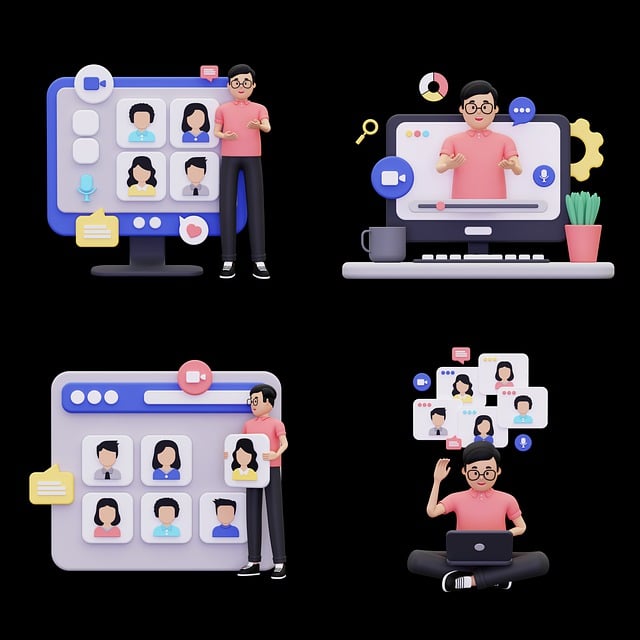Confidential computing offers a groundbreaking solution for non-profit organizations worldwide to safeguard donor records, volunteer data, and internal communications in cloud environments. By employing advanced encryption and secure multi-party computation, this technology ensures sensitive information remains protected from collection to analysis, reducing exposure to cyber threats. This robust security measure is crucial for maintaining stakeholder trust, complying with regulations, and preserving the integrity of digital operations, making it a transformative tool for NGOs handling diverse and sensitive data in today's digital era.
In today’s digital era, Confidential Computing offers a discrete online experience, pivotal for Non-Profit Organizations (NPOs) worldwide seeking robust data security and privacy. This article delves into the foundational concepts of Confidential Computing, exploring its role in mitigating critical security risks faced by NPOs during online operations. We provide strategic insights on implementing discreet digital solutions while highlighting global success stories, demonstrating how this technology empowers NPOs to maximize impact with enhanced confidentiality.
- Understanding Confidential Computing: A Foundation for Non-Profit Security
- Challenges Non-Profits Face in Online Operations: Data Privacy and Security Risks
- Implementing Discreet Online Experience: Tools and Strategies for Non-Profit Organizations
- Global Impact: How Confidential Computing Empowers Non-Profits Worldwide
Understanding Confidential Computing: A Foundation for Non-Profit Security

Confidential computing is a revolutionary concept designed to protect data privacy and security during processing, even in cloud environments. This approach ensures that sensitive information remains confidential and secure throughout every step of computation, from data collection to analysis. For non-profit organizations worldwide, adopting confidential computing can be a game-changer in safeguarding donor records, volunteer data, and internal communications.
By leveraging advanced encryption techniques and secure multi-party computation, confidential computing enables entities to collaborate on data without exposing it to third parties. This foundation of robust security is particularly vital for non-profits, which often deal with diverse and sensitive data. Implementing confidential computing can help these organizations maintain the trust of their stakeholders, ensure compliance with privacy regulations, and ultimately, protect the confidentiality and integrity of their operations.
Challenges Non-Profits Face in Online Operations: Data Privacy and Security Risks

Non-profit organizations, while dedicated to impactful missions, often face significant challenges when operating online. One of the most pressing concerns is data privacy and security. As they collect and process sensitive information about donors, volunteers, and beneficiaries, non-profits become attractive targets for cybercriminals seeking to exploit vulnerabilities. This is especially true as many organizations lack robust cybersecurity infrastructure and expertise. The rise of confidential computing offers a promising solution for these entities worldwide.
Confidential Computing for Non-Profit Organizations Worldwide enables secure data processing by keeping information within the organization’s boundaries, reducing exposure to external threats. By leveraging specialized technologies, non-profits can safeguard sensitive operations without compromising their mission or donor trust. This approach is crucial in maintaining the integrity of online interactions and ensuring the confidentiality of critical data, fostering a more discreet and safe digital experience for all stakeholders involved.
Implementing Discreet Online Experience: Tools and Strategies for Non-Profit Organizations

Non-profit organizations worldwide are increasingly recognizing the importance of providing a discreet online experience for their donors, volunteers, and beneficiaries. Confidential computing offers a promising solution to this growing need by enabling secure data processing and storage tailored specifically to sensitive information. By leveraging tools and strategies that incorporate confidential computing, non-profits can enhance privacy, comply with regulatory requirements, and build trust among their stakeholders.
Implementing discreet online experiences involves selecting the right technology partners who specialize in confidential computing solutions. This includes employing encrypted communication channels, secure data storage mechanisms, and robust access controls to safeguard personal and financial details. Additionally, non-profits should prioritize user-friendly interfaces that ensure simplicity and accessibility without compromising security. Such measures not only protect sensitive information but also foster a positive perception of the organization’s commitment to transparency and ethical data handling practices.
Global Impact: How Confidential Computing Empowers Non-Profits Worldwide

Confidential computing is transforming the way non-profit organizations worldwide operate, empowering them to handle sensitive data securely and effectively. By enabling private and secure processing of information without sharing it, this technology allows NGOs to protect the privacy of individuals they serve, maintain trust, and comply with global data protection regulations. This is particularly crucial in regions where data security and privacy concerns are heightened due to political or cultural factors.
Non-profit organizations can leverage confidential computing to enhance their impact across various sectors. In healthcare, it enables secure analysis of patient records, facilitating better research and personalized care without compromising patient data. Financial institutions can process financial transactions more efficiently while ensuring the confidentiality of user information. Moreover, in humanitarian efforts, confidential computing can support secure data sharing among aid organizations, streamlining response efforts during crises and ensuring that sensitive information remains protected.
Confidential computing represents a game-changer for non-profit organizations worldwide, offering robust solutions to navigate the complex landscape of online operations. By implementing discreet online experiences through specialized tools and strategies, these entities can enhance data privacy and security, fostering trust among donors and beneficiaries. Embracing confidential computing empowers non-profits to leverage technology while ensuring sensitive information remains protected, ultimately driving global impact and strengthening their crucial mission.
